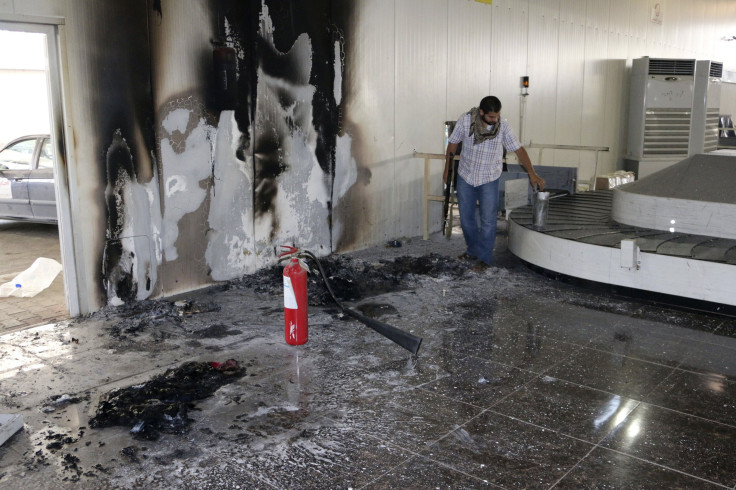Libyan Militia Fighting For Control Of Tripoli Airport Agree To Truce; Ministry Asks UN For Help

Libyan militia fighting for control of Tripoli's main airport have agreed to a cease-fire after five days of heavy fighting with a rival armed group, media reports said Friday.
The news comes after the government asked the U.N. Security Council on Thursday for assistance to stop the country from becoming a “failed state.” Libya's Foreign Minister Mohamed Abdelaziz reportedly appealed to the council "to take the case of Libya seriously before it is too late,” and help the nation protect its oil installations, ports and civilian airports.
"We are not asking for military intervention to protect the oil but we need teams — experts, trained people — to work with Libyans ... so the Libyans can learn how to protect these strategic sites," Abdelaziz reportedly said.
Libyan authorities reportedly said Friday that they have ordered the closure of the country’s airspace because of security concerns, adding that the airspace over the country’s east will remain open during the daytime. On Thursday, air-traffic controllers reportedly went on strike to protest the shelling of Tripoli's main airport, grounding flights throughout the western part of the oil-producing country.
Mokhtar Lakhdar, a commander for the Zintan forces that currently control the airport, told Agence France-Presse that a truce had been agreed under the authority of Tripoli’s government council.
On Sunday, clashes had erupted between forces of the Libya Shield, which is a part of the Libyan army, and Islamist gunmen from the city of Misrata, near Tripoli International Airport, which has since been closed.
The attack reportedly claimed the lives of at least 15 people and wrecked more than 11 civilian planes in the worst violence witnessed in the Libyan capital in six months. The airport area has been in control of former rebel fighters from the western town of Zintan, who helped topple dictator Muammar Gaddafi in a NATO-backed uprising in 2011.
“Should Libya become a failed state, kidnapped by radical groups and warlords, the consequences would be far-reaching and perhaps beyond control,” Abdelaziz reportedly said.
The 15-member U.N. Security Council reportedly decried the recent violence in the region in a statement, adding that it "follows a deeply concerning prolonged pattern of politically motivated and inter-militia violence, making it even more difficult for the Libyan authorities to govern effectively."
U.N. special envoy Tarek Mitri reportedly said: "As the number of military actors mobilizing and consolidating their presence within the capital continues to grow, there is a mounting sense of a probable imminent and significant escalation in the conflict. The stakes are high for all sides."
© Copyright IBTimes 2024. All rights reserved.










